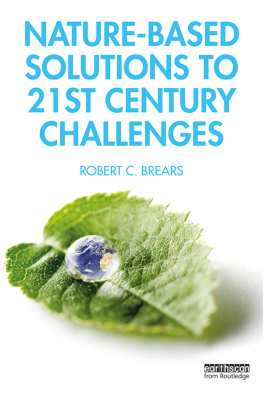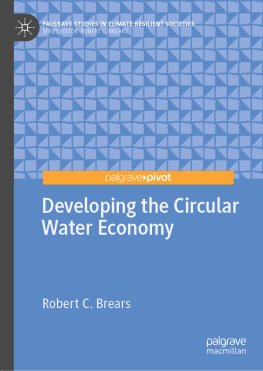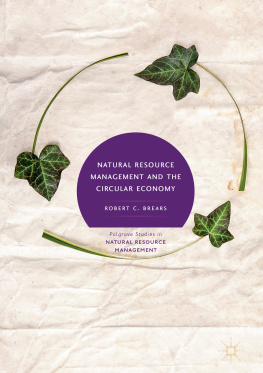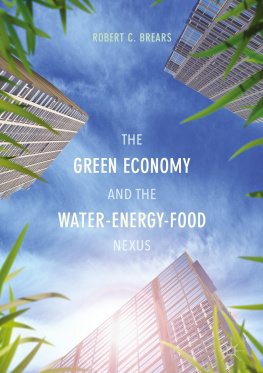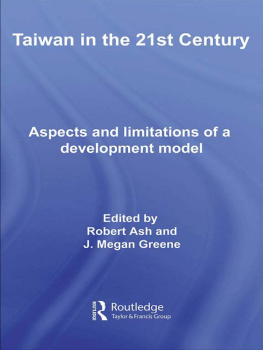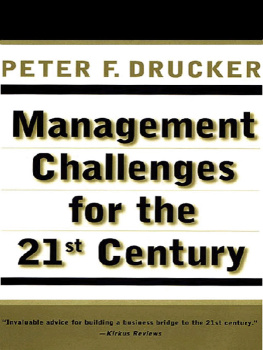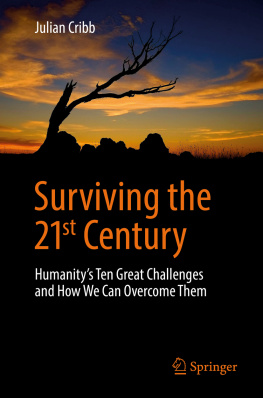Robert C. Brears - Nature-Based Solutions to 21st Century Challenges
Here you can read online Robert C. Brears - Nature-Based Solutions to 21st Century Challenges full text of the book (entire story) in english for free. Download pdf and epub, get meaning, cover and reviews about this ebook. year: 2020, publisher: Taylor and Francis, genre: Romance novel. Description of the work, (preface) as well as reviews are available. Best literature library LitArk.com created for fans of good reading and offers a wide selection of genres:
Romance novel
Science fiction
Adventure
Detective
Science
History
Home and family
Prose
Art
Politics
Computer
Non-fiction
Religion
Business
Children
Humor
Choose a favorite category and find really read worthwhile books. Enjoy immersion in the world of imagination, feel the emotions of the characters or learn something new for yourself, make an fascinating discovery.
- Book:Nature-Based Solutions to 21st Century Challenges
- Author:
- Publisher:Taylor and Francis
- Genre:
- Year:2020
- Rating:4 / 5
- Favourites:Add to favourites
- Your mark:
- 80
- 1
- 2
- 3
- 4
- 5
Nature-Based Solutions to 21st Century Challenges: summary, description and annotation
We offer to read an annotation, description, summary or preface (depends on what the author of the book "Nature-Based Solutions to 21st Century Challenges" wrote himself). If you haven't found the necessary information about the book — write in the comments, we will try to find it.
Nature-Based Solutions to 21st Century Challenges — read online for free the complete book (whole text) full work
Below is the text of the book, divided by pages. System saving the place of the last page read, allows you to conveniently read the book "Nature-Based Solutions to 21st Century Challenges" online for free, without having to search again every time where you left off. Put a bookmark, and you can go to the page where you finished reading at any time.
Font size:
Interval:
Bookmark:
First, I wish to first thank Hannah Ferguson for being a visionary who enables books like mine to come to fruition. Second, I wish to thank Mum, who has a great interest in the environment and has supported me in this journey of writing the book.
INTRODUCTION
In the 21st century, society is faced with a variety of climatic and non-climatic challenges that can lead to abrupt and in some cases irreversible environmental change that adversely impacts human development. For instance, rapid population growth and urbanisation are resulting in ecosystem degradation from excessive water withdrawal, eutrophication, and pollution, while climate change is increasing the frequency, intensity, and magnitude of disasters, leading to a higher number of fatalities and injuries as well as increased property and economic losses.
Rather than relying on conventional engineering solutions to address these challenges, there is growing recognition of the need to work with ecosystems to ensure liveability in cities, help communities cope with and recover from disasters, and adapt to and mitigate climate change, all the while protecting natural ecosystems and biodiversity.
Nature-based solutions (NBS) are inspired and supported by nature and use or mimic natural processes and can be applied strategically and equitably to help societies address a variety of climatic and non-climatic challenges. At the same time, NBS can bring about multiple economic, environmental, and social benefits, such as reduced infrastructure costs, job creation and green growth, and health and recreational opportunities.
NBS can be used to reduce risks from sudden events, for instance, coastal vegetation and natural features including sand dunes and mangroves can provide protection to local communities from storm surges while healthy coral reefs can reduce wave energy during coastal storms. Furthermore, NBS can reduce secondary impacts such as landslides following earthquakes. NBS can also reduce risks from slow-onset events such as drought; for example, communities can mitigate droughts by releasing water from natural storage features such as lakes and aquifers for human and natural use.
Despite this, there is lack of understanding on how best to implement NBS in meeting societal challenges as the concept of NBS is relatively young and is still in the process of being framed. There are many cases where policies ignore NBS options, even when they are obvious and proven to be efficient. According to the United Nations World Water Development Report, despite rapidly growing investment in NBS, evidence shows that this is still well below one percent of total investment in water resources management infrastructure.
To upscale NBS requires innovative governance models that promote cross-sectoral and multi-scalar collaboration; ensure stakeholder engagement in the development of locally co-created solutions; increase knowledge and confidence in NBS among policy- and decision-makers and the general public through, for example, targeted educational programmes; involve local communities to develop a sense of belonging and ensure proper use and maintenance of NBS; and increase awareness and uptake of NBS in the private sector.
There is, however, no systematic survey of the various policy solutions that have been implemented to encourage the mainstreaming of NBS that are inspired by, supported by, or copied from nature to achieve sustainable urbanisation, restore degraded ecosystems, mitigate and adapt to climate change, and reduce risks from natural disasters. Instead, the majority of texts focus on the engineering and hard science aspects of conventional solutions to societal challenges or on developments in particular facets of NBS.
Nature-based solutions to 21st Century Challenges surveys the various technology policies used in leading locations around the world to develop and encourage NBS, which turn societal challenges into opportunities for sustainable and green growth. The book will define the term technologies according to the use by UNEP-DHI, which classifies technologies as hardware (physical infrastructure and technical equipment on the ground), software (soft technologies including approaches, processes, and methodologies including planning and decision support systems, models, knowledge transfer, and building capacity), and orgware (organisation technologies, for instance, organisation, ownership, and institutional arrangements).
In particular, Nature-based solutions to 21st Century Challenges surveys the various hardware, software, or orgware implemented or encouraged by multiple levels of government to develop NBS for enhancing sustainable urbanisation, restoring degraded ecosystems, mitigating and adapting to climate change, and reducing risks from natural disasters, all the while ensuring multiple environmental, economic, and social benefits are maximised. From this survey, readers will be provided with an overview of best practices from leading locations around the world that have implemented NBS to address societal challenges.
Following this introduction, the books chapter synopsis is as follows:
defines the term nature-based solutions and how they can be implemented to achieve wider development goals while enhancing the resilience of socio-ecological systems to long-term social and ecological changes.
provides readers with an overview of societal challenges that can lead to abrupt, at times irreversible, environmental damage that is detrimental to human development.
discusses how climate change will result in habitat types becoming fragile and ecosystems less resilient while plant and animal species will be at increased risk of extinction.
reviews the various types of environmental degradation that have resulted from societal challenges before discussing environmental degradation impacts on biodiversity.
discusses how climate change and environmental degradation are likely to affect society through impacts on a number of different social, cultural, and natural resources.
discusses how NBS can enhance the storage of carbon, contributing to climate change mitigation.
discusses how NBS involve the sustainable management, conservation, and restoration of ecosystems to help people adapt to climate change.
discusses how restoring degraded ecosystems using NBS can improve the resilience of ecosystems, enabling them to deliver ecosystem services and to meet other societal challenges.
discusses how NBS can be applied to enhance sustainable urbanisation.
discusses the role of ecosystems in disaster risk reduction and how NBS contribute to hazard mitigation, livelihood security, and resilience to disasters.
discusses how NBS, to be effective, need to be guided by an adaptive management framework.
provides a review of funding sources and financial instruments available to finance NBS.
provides an overview of best practices, followed by the conclusion.
It is now recognised that societal challenges, including climate change as well as rapid
When considering any response to a societal challenge, whether it is the result of an industrial or engineering issue or involves the management of a resource at a local or global scale, NBS can be explored, which broadens the range of options that can be considered in solving a challenge. Therefore, operationally, it is possible to explore the scope of a nature-based solution by unpacking its different elements, where:
- Nature: Relates to biodiversity in aggregate, individual elements of biodiversity, and/or ecosystem services
- Nature-based: Refers to ecosystem approaches, ecosystem-based approaches, biomimicry, or different utilisation of elements of biodiversity
Font size:
Interval:
Bookmark:
Similar books «Nature-Based Solutions to 21st Century Challenges»
Look at similar books to Nature-Based Solutions to 21st Century Challenges. We have selected literature similar in name and meaning in the hope of providing readers with more options to find new, interesting, not yet read works.
Discussion, reviews of the book Nature-Based Solutions to 21st Century Challenges and just readers' own opinions. Leave your comments, write what you think about the work, its meaning or the main characters. Specify what exactly you liked and what you didn't like, and why you think so.

